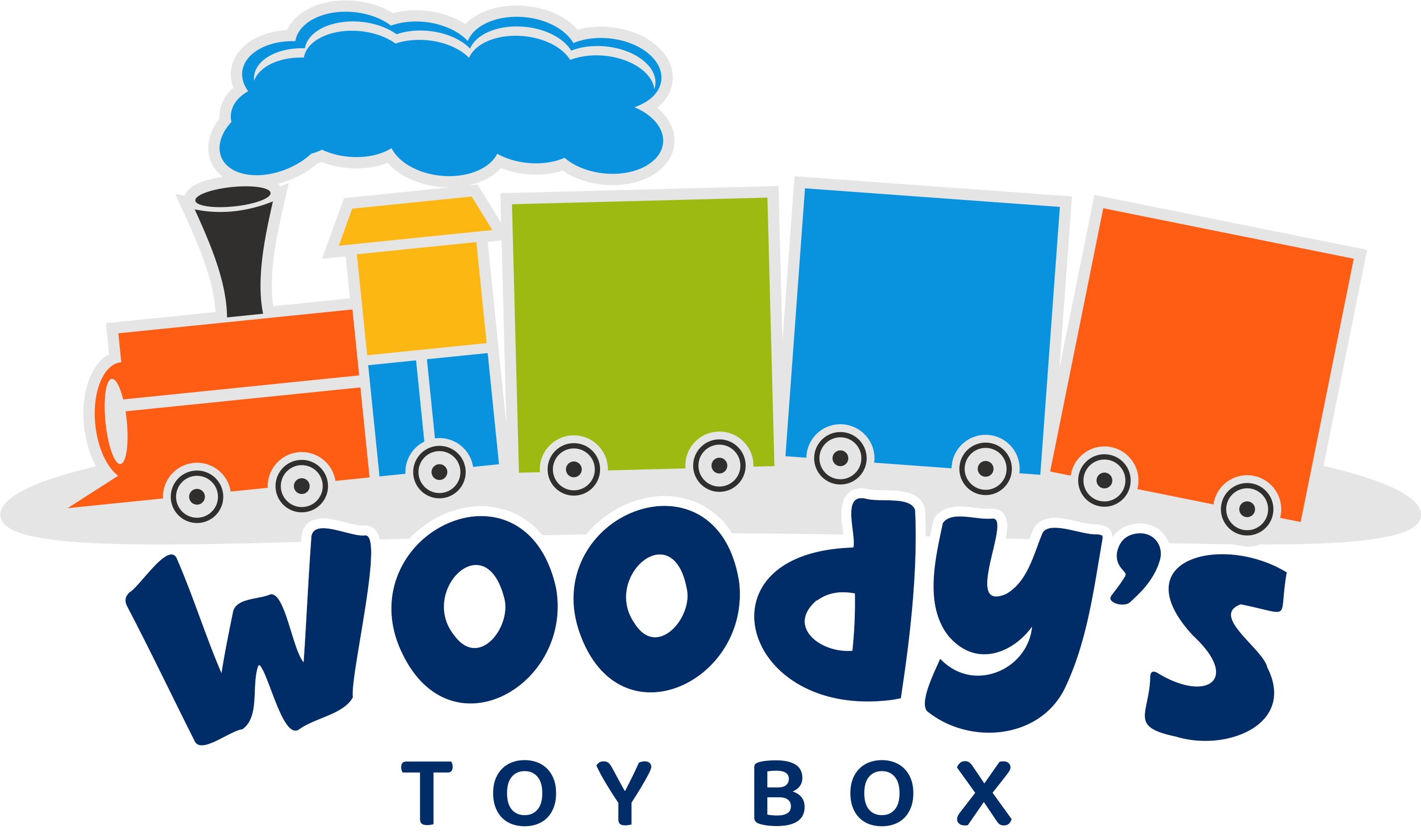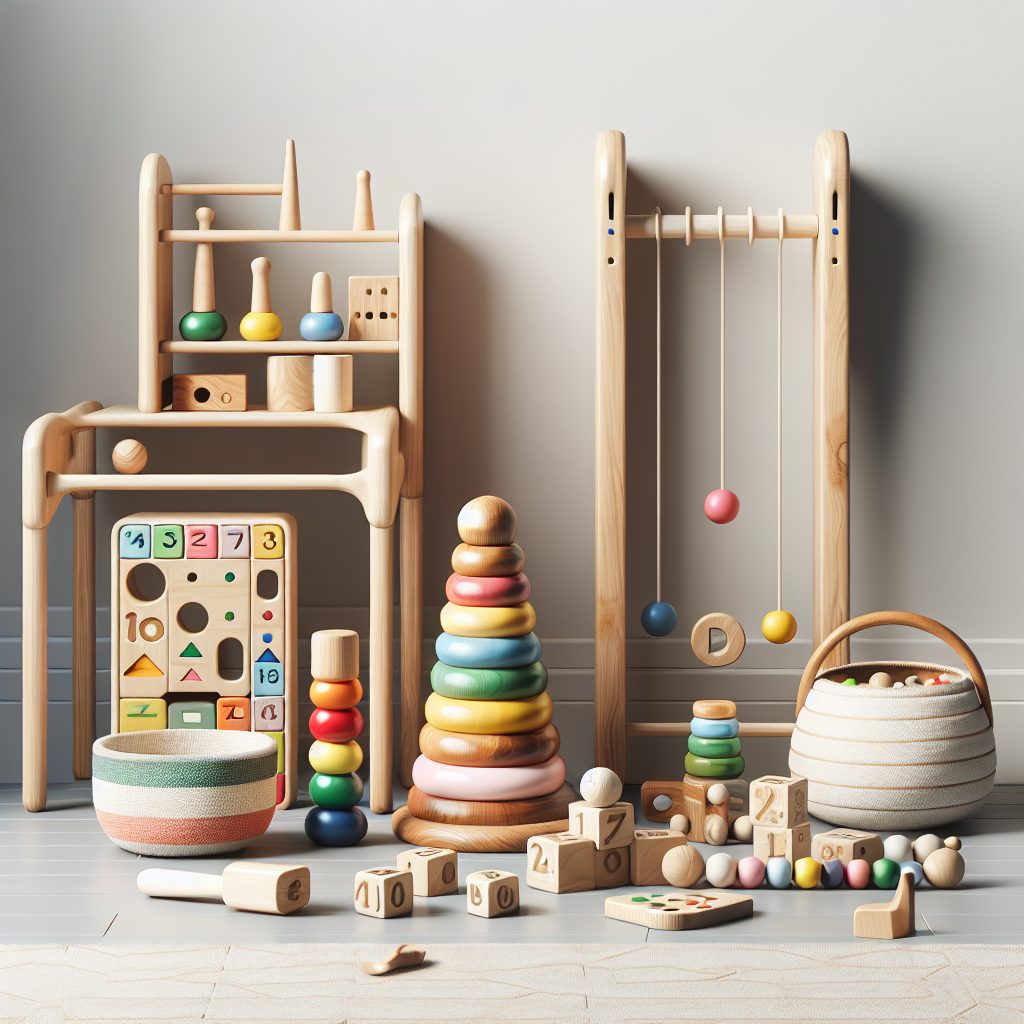When it comes to early childhood development, Montessori education has gained immense popularity for its child-centered approach and emphasis on hands-on learning. One important aspect of this educational philosophy is the use of Montessori toys, which are specifically designed to foster a child’s cognitive, physical, and emotional development. Whether you are a parent or an educator, understanding the top Montessori toys for toddlers is essential in creating an enriching learning environment for your little ones.
Montessori toys are carefully curated to promote independent play, curiosity, and problem-solving skills in toddlers. These toys are often made from natural materials such as wood and encourage exploration and creativity. Additionally, Montessori toys are designed to be age-appropriate, allowing children to develop at their own pace and learn through hands-on experiences. With their focus on open-ended play and freedom of choice, Montessori toys provide endless opportunities for toddlers to engage their senses and develop essential skills.
In the following section, we will explore the top Montessori toys for toddlers in detail and discuss their unique features and benefits. From simple shape sorters to sensory play kits, we will cover a wide range of toys that can support your child’s growth and development. So, let’s dive in and discover the key takeaways from this comprehensive guide to the top Montessori toys for toddlers.
Key Takeaways
1. Montessori toys are designed to promote independence, creativity, and problem-solving skills in toddlers. They focus on simplicity, natural materials, and open-ended play, allowing children to explore and discover at their own pace.
2. Practical life toys, such as pouring, scooping, and sorting activities, help toddlers develop fine motor skills, concentration, and hand-eye coordination. These toys mimic everyday tasks and provide a sense of accomplishment and purpose for young children.
3. Sensorial toys, like puzzles, stacking toys, and texture games, stimulate the senses and help toddlers refine their perception and discrimination skills. These toys encourage exploration, concentration, and cognitive development through hands-on engagement.
4. Language and literacy toys boost vocabulary, comprehension, and early literacy skills. Activities like matching games, picture cards, and storytelling sets provide meaningful ways for toddlers to develop language skills and engage in imaginative play.
5. Math and numeracy toys introduce basic mathematical concepts, such as counting, sorting, and identifying shapes and patterns. These toys promote problem-solving, logical thinking, and spatial awareness while fostering a positive attitude towards math in young children.
What are the Best Montessori Toys for Toddlers? A Comprehensive Guide
Introduction
When it comes to choosing toys for toddlers, Montessori-inspired options have gained popularity due to their focus on promoting independent learning, fine motor skills, problem-solving abilities, and sensory development. In this comprehensive guide, we will explore the top Montessori toys for toddlers, providing detailed insights into each category. Whether you are a parent, teacher, or caregiver, this guide will help you make informed decisions and create an engaging and educational environment for your little ones.
Gross Motor Skill Development Toys
Helping toddlers develop their gross motor skills is important for their overall physical and cognitive development. Here are some top Montessori toys that support gross motor skill development:
1. Wooden Balance Boards
Wooden balance boards offer a perfect way for toddlers to improve their balance, coordination, and core strength. These sturdy boards can be used indoors or outdoors, allowing toddlers to rock, balance, or even use them as bridges.
2. Climbing Frames
Climbing frames provide an excellent opportunity for toddlers to enhance their climbing, crawling, and spatial awareness skills. Look for frames made with non-toxic materials and ensure that they are sturdy and stable for safe play.
Fine Motor Skill Development Toys
Fine motor skills are crucial for activities like writing, grasping objects, and hand-eye coordination. Montessori toys that focus on fine motor skill development include:
1. Sorting and Stacking Toys
Toys that involve sorting and stacking help toddlers refine their hand-eye coordination, problem-solving, and cognitive abilities. Choose options like wooden stacking rings or sorting toys with various shapes and colors to engage their senses further.
2. Puzzles
Puzzles are excellent for developing problem-solving skills and hand-eye coordination. Montessori-inspired puzzles often have large, chunky wooden pieces that are easy for little hands to grasp and manipulate.
Sensory Development Toys
Sensory development toys stimulate a toddler’s senses, including touch, sight, and sound. Here are some Montessori toys for sensory development:
1. Sensory Balls
Sensory balls with different textures, sizes, and colors encourage exploration and sensory stimulation. Toddlers can squeeze, roll, and toss these balls, enhancing their tactile and visual senses.
2. Sensory Bins
Sensory bins filled with materials like sand, rice, or water offer endless possibilities for tactile exploration. Include tools like scoops, funnels, and small containers to promote fine motor skills and imaginative play.
Imaginative and Creative Play Toys
Promoting imaginative and creative play is essential for a child’s cognitive development. Montessori toys that foster imaginative play include:
1. Wooden Building Blocks
Wooden building blocks allow toddlers to construct structures, encouraging creativity, problem-solving, and spatial awareness. Look for blocks of varying shapes and sizes to promote open-ended play.
2. Pretend Play Sets
Pretend play sets like kitchen sets, doctor kits, or dollhouses allow toddlers to engage in imaginative role-playing. These toys enhance language skills, social interaction, and emotional development.
Conclusion
Incorporating Montessori-inspired toys in your toddler’s playtime can be highly beneficial for their overall development. By focusing on gross and fine motor skills, sensory development, and fostering imaginative play, you can create a stimulating environment that promotes curiosity and learning. Remember to choose toys that are age-appropriate, safe, and encourage hands-on exploration.
Now that you have an understanding of the different Montessori toys for toddlers, here are some tips to help you choose the best options:
1. Consider your toddler’s age and developmental stage before selecting a toy.
2. Opt for toys made from natural materials like wood, fabric, or silicone, avoiding plastic whenever possible.
3. Look for toys that promote open-ended play and allow for exploration and creativity.
4. Prioritize toys that are free from toxic substances and have passed safety regulations.
5. Rotate toys regularly to maintain your toddler’s interest and provide variety in their playtime.
6. Spend quality time engaging with your child during play to enhance their learning experience.
7. Observe your toddler’s interests and preferences to personalize their toy selection.
By following these tips and incorporating the top Montessori toys for toddlers into your child’s daily routine, you can create an environment that fosters learning, creativity, and enjoyment.
Frequently Asked Questions
1. Are Montessori toys beneficial for toddlers?
Yes, Montessori toys are highly beneficial for toddlers as they promote independent learning, problem-solving skills, and develop fine motor skills. These toys are designed to engage a child’s senses and cater to their natural curiosity.
2. What age range are Montessori toys suitable for?
Montessori toys are suitable for toddlers aged 1 to 3 years old. As toddlers are in a critical stage of development, these toys provide age-appropriate activities and challenges to support their growth and learning.
3. How do Montessori toys differ from traditional toys?
Montessori toys differ from traditional toys as they are thoughtfully designed to encourage exploration, independence, and focus on a specific skill or concept. They are made from natural materials and often have a minimalistic design to foster a child’s creativity and imagination.
4. Can Montessori toys be used alongside other educational methods?
Absolutely! Montessori toys can be used alongside other educational methods. They complement various learning approaches and enhance the overall learning experience of a child. Incorporating Montessori toys into different educational methods can enrich a toddler’s development.
5. Are Montessori toys safe for toddlers?
Yes, Montessori toys are safe for toddlers when they are age-appropriate and meet safety standards. Parents should always ensure that the toys are free from small parts that can pose choking hazards, and that they are made from non-toxic materials.
6. How can I choose the right Montessori toy for my toddler?
When choosing a Montessori toy for your toddler, consider their current developmental stage, interests, and abilities. Look for toys that provide opportunities for learning, exploration, and encourage independent play. Additionally, opt for toys that are made from natural and sustainable materials.
7. Can I make Montessori toys at home?
Absolutely! Making Montessori toys at home is a wonderful way to engage with your toddler and provide them with educational experiences. There are numerous DIY Montessori toy ideas available online that utilize simple everyday materials.
8. How can Montessori toys promote language development?
Montessori toys promote language development by offering opportunities for vocabulary expansion, storytelling, and building communication skills. Toys that involve sorting, matching, or naming objects help stimulate language acquisition and development in toddlers.
9. Do Montessori toys help with fine motor skills?
Yes, Montessori toys are excellent for developing fine motor skills in toddlers. Activities like stacking, sorting, and manipulating objects help strengthen hand-eye coordination, finger dexterity, and overall fine motor control.
10. Are Montessori toys expensive?
While some Montessori toys may have a higher price tag due to their quality and craftsmanship, there are also plenty of affordable options available. Many Montessori toys can be made at home or found at reasonable prices, making them accessible to families with different budgets.
Final Thoughts
Overall, integrating Montessori toys into a toddler’s playtime can provide numerous benefits for their development. The hands-on, child-centered approach fosters independence, critical thinking, and a love for learning. By carefully selecting age-appropriate Montessori toys and encouraging open-ended play, parents can create a nurturing and enriching environment for their toddlers.
Remember, the goal of using Montessori toys is not solely about academic readiness, but rather to support the holistic growth of the child. So, embrace the principles of Montessori education and watch your toddler thrive in their exploration and discovery!

